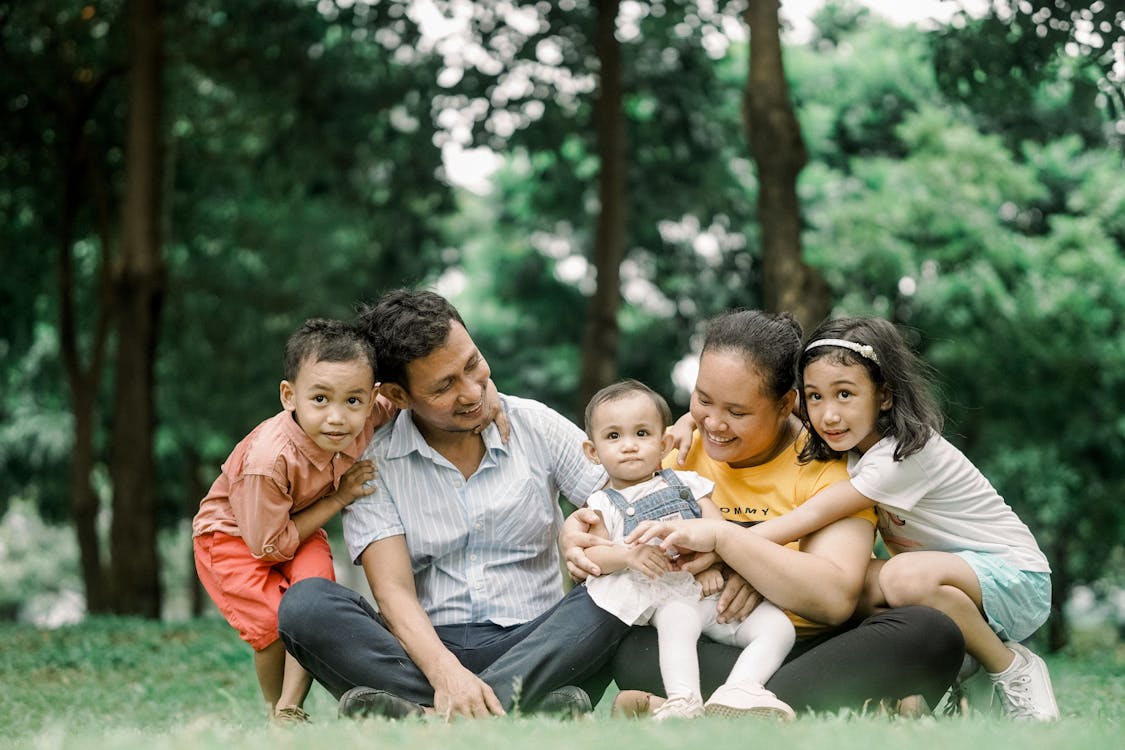Hey fellow moms! Let’s chat about something that might sound a bit grandiose at first but actually has a lot of heart and practicality behind it: creating a family philanthropic legacy plan for our community. It’s not just about being generous; it’s about setting an example and passing on important values to our kids.
So, let’s break down what this really means and why it’s something worth considering for our families.

What is a Family Philanthropic Legacy Plan?
Basically, it’s a fancy term for deciding as a family how you want to give back to the community in a meaningful way, not just now but over the long haul. It’s about thinking bigger—beyond just writing checks to charities or dropping coins into a donation box during the holidays.
It involves setting up a plan where you and your kids can actively participate in charitable activities, and maybe even set up ongoing support for causes that are important to you.
Is Family Philanthropy Worth the Effort?
Absolutely, and here’s why. Family philanthropy isn’t just about the money or resources you give; it’s about the values you cultivate within your family and the impact those values can have on the world around you.
1. Building a Legacy of Giving
By engaging in family philanthropy, you’re not just helping others; you’re also building a legacy. This legacy is one of compassion, responsibility, and active contribution to society.
It becomes a fundamental part of your family’s identity, something that can be passed down through generations.
2. Teaching Life Lessons
There’s no better way to teach children about the realities of the world than by actively working to improve it. Through philanthropy, kids learn about the challenges others face and the difference one person (or one family) can make. These are invaluable lessons in empathy, ethics, and civic responsibility.
3. Fostering Gratitude and Perspective
Participating in philanthropic activities can help family members appreciate their own circumstances and understand the diverse experiences of others in their community.
This perspective is crucial in today’s global society and can influence how your children approach everything from personal relationships to business decisions.
4. Enhancing Family Bonds
Working together towards a common goal can significantly strengthen family bonds. Shared experiences, especially those that involve helping others, create lasting memories and foster a sense of unity and pride in your family’s contributions to society.
5. Creating Impactful Change
When families commit to sustained philanthropic efforts, they can create substantial change. The efforts of a dedicated family can lead to meaningful, lasting impacts, whether it’s:
- Revitalizing a community park
- Supporting a local school
- Funding medical research

6. Setting a Community Example
Your family’s commitment to philanthropy can also inspire friends, neighbors, and colleagues to take action. In this way, your family can serve as community leaders, sparking a chain reaction of goodwill and community involvement.
So, is family philanthropy worth the effort? When you consider the profound effects it can have on both your family and the wider community, the answer is a resounding yes. It’s about so much more than the resources you give. It’s about instilling values, building character, and creating a positive impact that resonates well beyond your own household.
It’s a commitment to doing good that can inspire, transform, and lead to a richer, more fulfilling family life.
According to The Phialanthropic Initiative, “For its participants, family philanthropy can deliver a powerful sense of connectedness to the broader society. It does this in part by giving more meaning to wealth and making sense of wealth disparity. Philanthropy broadens horizons; it takes us out of our cocoons and narrow geographic orbits and connects us to the crazy, messy world out there.”
How to Get Started
Flourish Wealth Management says, “Once thought to be the exclusive arena of the ultra wealthy, charitable giving has become a national phenomenon across all tax brackets and households. In fact, charitable giving surged to a record high of over $400 billion in 2017, and Individual giving accounts for the majority of those donations. Philanthropy and giving are not only good for the charities and organizations receiving the donations, but for the givers themselves.”
So, here’s how you can get started on your family’s philanthropic legacy plan for your community:
Family Meeting Time!
Grab some snacks and gather around the table for a family meeting. Discuss what causes are close to your hearts. Animals, the environment, helping other kids? There’s no wrong answer here.
Research Together
Once you’ve picked a cause, do some research together. Look up local organizations that support your cause.
What do they do? How can you help? Maybe they need volunteers, or perhaps you can start a small fundraiser as a family.
Set Some Goals
Decide as a family how you want to contribute. It could be volunteering a certain number of times a month, organizing a yearly fundraiser, or even setting aside a small part of your household budget for donations.
Keep It Fun
Remember, this is something that should bring joy and satisfaction, not feel like another chore.
Celebrate after completing a volunteer day, or have a little party when you meet one of your donation goals.
Review and Reflect
Regularly check in as a family to discuss what’s working and what isn’t. Maybe your interests have changed, or you’ve learned about another cause you want to support. It’s okay to shift your focus.
The Importance of Family Meetings for Legacy Planning
Family meetings are crucial when you’re planning any kind of family legacy, especially one that involves philanthropy. These aren’t just any old meetings; they’re special, dedicated times where your family can come together to discuss values, dreams, and the practical steps needed to make those dreams a reality.
They provide a safe space for everyone to express their thoughts and feelings, which is vital for ensuring that everyone feels involved and invested in the family’s philanthropic goals.
It’s about more than just logistics; it’s about nurturing a family culture that values giving back and supports each other’s passions.

What Issues Does a Legacy Plan Address?
When setting up a family philanthropic legacy plan, there are several key issues you’ll address:
Community Needs
What challenges does your community face? Are there underserved areas or groups you feel passionate about helping? Identifying these needs can guide your family’s philanthropic efforts.
Family Interests and Passions
Different family members might be drawn to different causes. A legacy plan helps you blend these interests in a way that satisfies everyone and maximizes your collective impact.
Resource Allocation
How will you allocate your resources? This includes not only money but also time and skills. A legacy plan helps you decide how much you can realistically contribute without overextending yourselves.
Long-term Commitment
Philanthropy can be a one-time thing, but a legacy plan is about creating ongoing support. You’ll need to think about how to sustain your efforts over the long term, possibly even setting foundations for future generations to continue.
Impact Measurement
How will you measure the impact of your giving? It’s important to see the results of your efforts, both for the satisfaction it brings and to understand where you might need to make adjustments.
Benefits of Family Meetings
Holding regular family meetings as part of your philanthropic journey offers several benefits:
- Enhanced Communication: Regular meetings encourage open communication, helping family members feel heard and valued. This is key to maintaining enthusiasm and commitment to your collective goals.
- Educational Opportunities: These meetings can be educational, introducing family members to new ideas and perspectives about giving and community needs. They can be a time for learning about the logistics of philanthropy, like how non-profits work or how funds are distributed and used.
- Stronger Relationships: Spending time discussing important issues can strengthen family bonds. These meetings can be a grounding force, helping family members connect with each other on a deeper level.
- Problem Solving as a Team: When challenges arise, family meetings provide a platform to strategize solutions together. This collaborative approach not only eases individual burdens but also enhances the sense of teamwork.
- Celebration of Achievements: Don’t forget to celebrate your successes during these meetings! Acknowledging and celebrating the milestones and impacts of your philanthropic efforts boosts morale and motivates continued participation.
By holding these family meetings, you’re not just planning for the future; you’re actively shaping a family identity that values generosity, teamwork, and community engagement.
It’s about creating a legacy of kindness and impact that can inspire not only your children but also generations to come.
As Bloom Investment Counsel, Inc. emphasizes, “Open communication, shared values, and long-term planning contribute to the sustainable management of family wealth and the well-being of future generations. Family meetings are therefore key to a successful long-term legacy plan. You may find it beneficial to seek the guidance of professional wealth planners, especially those who specialize in family enterprise structures.”
To Wrap Up
Creating a family philanthropic legacy plan isn’t just for the wealthy or the super organized; it’s something any of us can start, no matter how small. It’s about planting the seeds of compassion and responsibility in our kids, all while giving back to our community in a meaningful way.
Let’s make a difference together—one family project at a time!




